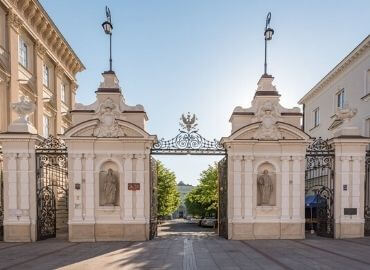The crisis in Belarus started as a politically driven social movement for a change. After the state security, police, and the army used brutal violence and torture against random civilians and peaceful protesters, purely political crisis has turned into a multidimensional conflict which now poses humanitarian, economic, military, and nuclear security risks. Meanwhile, the regime of Alexander Lukashenka has taken no steps to meet any of the demands of its opponents. On the contrary – repressions gain momentum in response to growing civil solidarity and determination to tear down the “lukashism” as a system of governance. What future scenarios Belarus may be facing in the upcoming months? What are the main subjects related to the crisis that may take proactive steps to resolve it?
Panelists:
—Siarhei Kharytonau, iSANS expert, author of the policy paper “The impact of global actors (EU, NATO, UN, US, Russia) on 2020 political crisis in Belarus”;
—Alexander Dabravolski, Senior political advisor to Sviatlana Tsikhanouskaya, member of the Coordination Council for the Transfer of Power in Belarus.
Moderated by Jovita Neliupšienė, Chancellor of the Ministry of Foreign Affairs of the Republic of Lithuania.











